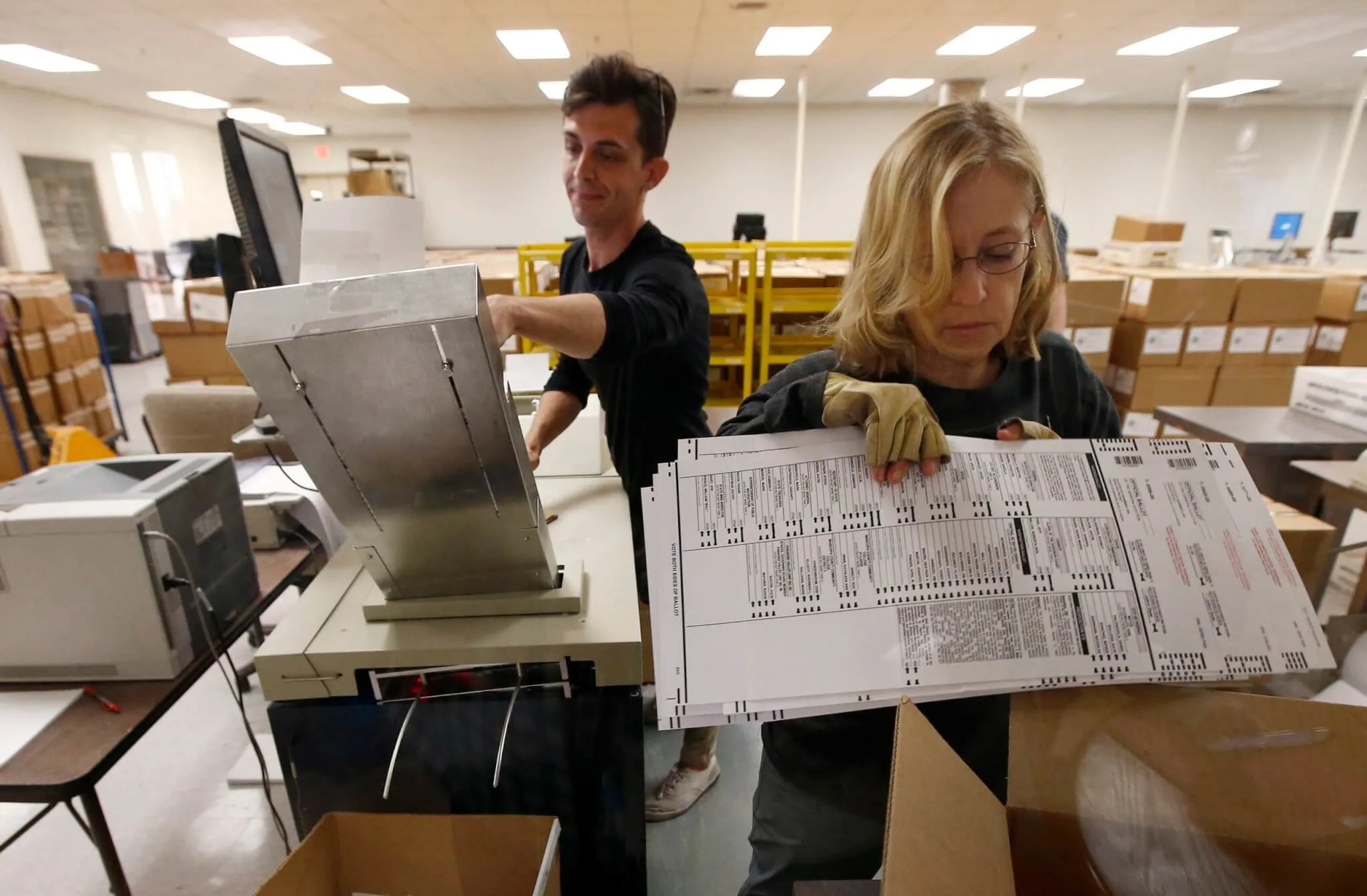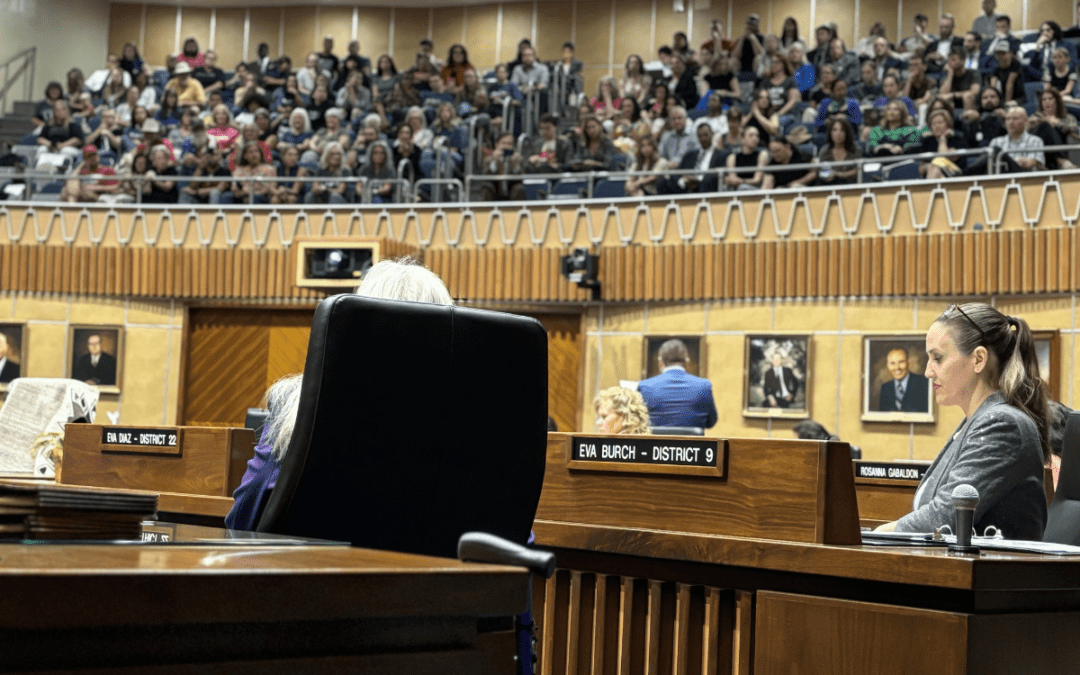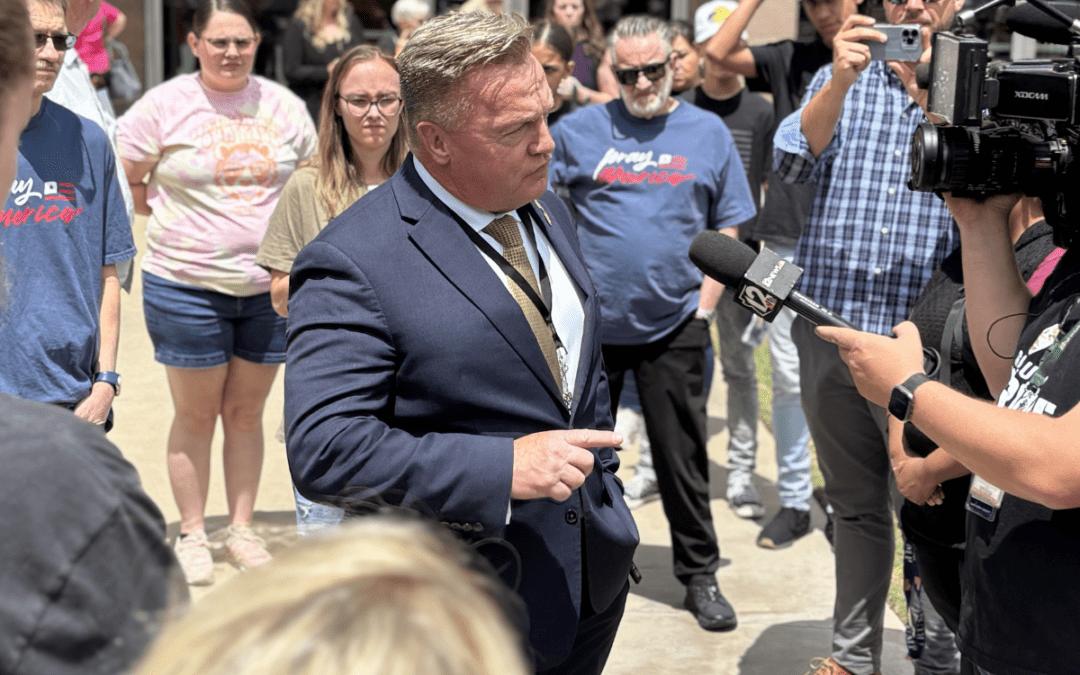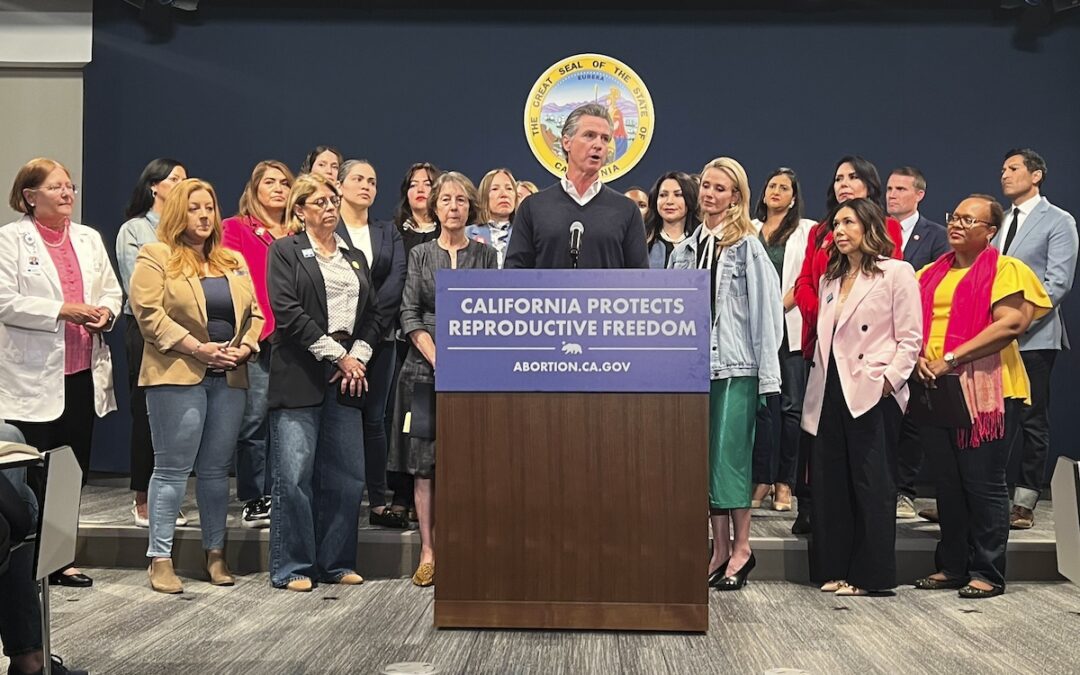
Workers organize ballots at the Maricopa County Recorder's Office Thursday, Nov. 8, 2018, in Phoenix. There are several races too close to call in Arizona, especially the Senate race between Democratic candidate Kyrsten Sinema and Republican candidate Martha McSally. (AP Photo/Ross D. Franklin)
Organizers for three different ballot initiatives submitted signatures this week that would reshape Arizona’s health care, education, and marijuana systems.
At least three voter initiatives announced this week that they reached the required number of petition signatures to qualify their initiative to be on the ballot this November.
The propositions aim to drastically alter Arizona’s health care system, the way the state funds education, and open the doors for recreational marijuana to be sold and consumed in the state. If passed, the changes would go into effect in 2021.
The Stop Surprise Billings and Protect Patients Act
Healthcare Rising Arizona, the public health advocacy group behind the Stop Surprise Billing and Protect Patients Act, submitted over 425,000 signatures to the Secretary of State’s office Thursday morning.
That’s more than the required 237,645, but initiative proponents usually get extras because many can be invalidated after vetting by the Arizona secretary of state and county recorders. The secretary of state has until near the end of August to decide if an initiative will make it on the ballot.
If passed, the measure would bar insurance and health care providers from charging patients a higher premium for having pre-existing conditions. Arizonans would also be protected from surprise medical bills for emergency care, ambulances, or out-of-network providers.
“As a nurse, I see health care professionals on the frontlines fighting the COVID crisis every day,” said Denice Rapp, a registered nurse who supports the initiative. “We have to lower costs by ending surprise bills and protecting patients with pre-existing conditions. And hospital workers deserve to be paid fairly.”
The initiative would also require private hospitals to meet national standards for infection control, and improve wages healthcare workers and onsite staff.
The Invest in Education Act
Organizers for the Invest in Education Act also filed their signatures on Thursday. The group collected more than 435,000 signatures in favor of the group’s plan to provide additional funding for schools.
If passed, the measure would add nearly $1 billion to the state’s annual education budget by adding a new tax on Arizona’s wealthiest residents.
The initiative would tack on an additional income tax for the state’s highest earners. The proposed tax would bring a 3.5% surcharge on individuals earning $250,000 and households earning $500,000. The tax would also operate independently of the state’s tax brackets, a deviation from a similar initiative from 2018.
The last initiative to increase school funding came in 2018 after 75,000 educators went on strike to protest decades of budget cuts by the state legislature. The strike ended when Gov. Doug Ducey offered to increase education funding to provide a 20% raise for teachers by 2020.
But the initiative was challenged in court, and eventually tossed off the ballot by the Arizona Supreme Court. In a 5-2 ruling, the Court declared that the wording of the proposal was misleading. Education activist Rebecca Garelli said that won’t happen again, as the current proposal underwent a 30-day review period by legislative staff in order to avoid legal issues.
“The initiative,” Garelli said, “will provide the much needed sustainable— and voter protected — funding to increase educators’ salary, including classroom support staff salaries which will help address the 1,800 vacancies that currently exist.”
The Smart and Safe Arizona Act
Proponents of legalizing recreational marijuana in Arizona said Wednesday they turned in 420,000 petition signatures for the Smart and Safe Arizona Act — far more than needed to get the measure on the November ballot despite challenges posed by the coronavirus.
Stacy Pearson, a spokesperson for the Smart and Safe Arizona Act, says she has high hopes for the initiative, even after Arizona voters in 2016 rejected a different legalization proposal. She said the current proposal addresses some of the concerns opponents had four years ago, when the proposal failed at the polls by roughly 2 ½ percentage points.
Under the 2020 effort, employers are not restricted from keeping a drug- and alcohol- free workplace or from having policies restricting marijuana use by employees. The measure also doesn’t require employers to allow or accommodate the use of marijuana at work.
On top of the regular sales tax, the measure calls for a 16% tax on marijuana, which would fund the government’s cost of administering the program. Whatever is left will be used for community colleges, infrastructure, roads and highways, public safety and public health. The measure also allows people who have been arrested or convicted of some marijuana offenses, such as possessing, consuming or transporting 2.5 ounces or less, to petition to have their records expunged.
Politics

Democrats successfully force vote on repealing 1864 abortion ban, passes House
The Arizona legislature moved forward two bills Wednesday that would repeal the state’s 1864 abortion ban. A bill to repeal the ban has been...

State Official: 1864 abortion ban gives Arizona ‘black eye’
Arizona’s role at the forefront of the climate crisis, defending democratic elections, and protecting reproductive rights has caught the attention...
Local News

Arizona Sens. Anthony Kern, Jake Hoffman, indicted for fake election scheme
Eighteen individuals involved in a conspiracy to overturn Arizona’s election results in 2020 were indicted by a grand jury Wednesday and charged...

Gov. Gavin Newsom wants to let Arizona doctors provide abortions in California
California law generally allows abortion up to the point of fetal viability, which is around 24 weeks. SACRAMENTO, Calif. (AP) — Arizona doctors...





